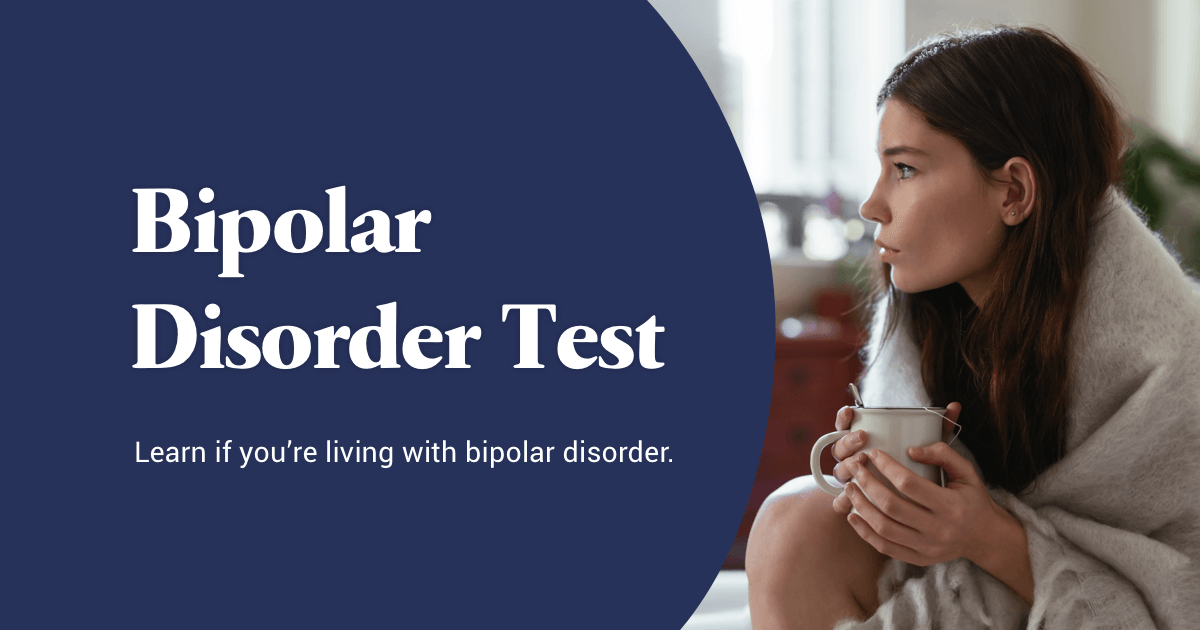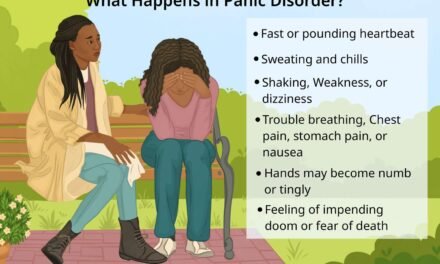Introduction to Bipolar Disorder Test:
Bipolar Disorder Test: A quick way to identify symptoms and assess the likelihood of bipolar disorder.
Bipolar disorder test helps doctors figure out if someone might have bipolar disorder. Bipolar disorder is a mental health condition that causes big changes in mood, energy, and activity levels. People with this condition might feel very happy and full of energy (mania) one moment and then feel very sad and tired (depression) another.
These extreme mood swings can make it hard to manage daily life. Taking a bipolar disorder test is an important first step in getting the right help and treatment.A bipolar disorder test usually involves answering questions about your feelings, behavior, and past experiences.
For example, the test might ask if you’ve ever felt super excited or restless for no clear reason or if you’ve gone through long periods of sadness or hopelessness. These questions help identify the symptoms of bipolar disorder. Doctors also check if these mood changes happen often and how they affect your life. It’s important to answer honestly so the test can give the best results.The bipolar disorder test doesn’t give a final diagnosis by itself.
Instead, it helps doctors understand what’s happening. Sometimes, the symptoms of bipolar disorder can look like other mental health issues, like anxiety or depression. That’s why a test is just one part of the process. A doctor might also ask about your family’s medical history or do other evaluations to confirm the diagnosis.
If you think you or someone you care about might need a bipolar disorder test, don’t hesitate to reach out for help. Getting tested early can make a big difference. With the right diagnosis, treatment plans like therapy, medication, or lifestyle changes can help manage bipolar disorder and improve quality of life. Remember, seeking help is a sign of strength, and understanding bipolar disorder is the first step toward better mental health.
Benefits of a Bipolar Disorder Test:
Taking a bipolar disorder test can provide many important benefits, especially for people struggling with extreme mood swings. Here are some key advantages:
1. Early Detection:
A bipolar disorder test helps identify the condition early. Catching the symptoms sooner allows for faster diagnosis and treatment, preventing the disorder from worsening over time. Early detection can also reduce the impact on relationships, work, and daily life.
2. Accurate Diagnosis:
Bipolar disorder can sometimes be mistaken for other mental health issues, like depression or anxiety. A test helps doctors gather detailed information about your symptoms, ensuring that you get the right diagnosis and avoid unnecessary treatments.
3. Personalized Treatment Plans:
Once the test confirms the presence of bipolar disorder, a tailored treatment plan can be created. This might include medication, therapy, or lifestyle adjustments. A proper plan improves mood stability and overall well-being.
4. Improved Quality of Life:
Understanding the condition through testing can lead to better symptom management. With the right support, people with bipolar disorder can regain control of their emotions and live fulfilling lives.
5. Emotional Relief:
Taking a bipolar disorder test can bring clarity. Many individuals feel relieved knowing what’s causing their mood swings. It also provides hope that with treatment, things can get better.
6. Support for Loved Ones:
For families and friends, a test can explain behavior changes they’ve noticed. This understanding fosters empathy and allows loved ones to offer meaningful support.A bipolar disorder test is a vital tool in the journey to better mental health. It opens the door to understanding, effective treatment, and a brighter future.
Symptoms of Bipolar Disorder:
Bipolar disorder causes extreme mood swings, which include emotional highs (mania or hypomania) and lows (depression). Recognizing the symptoms is key to understanding the condition and seeking help. Here’s a breakdown of the common symptoms:
1. Mania Symptoms:
During a manic phase, a person might:
- Feel overly happy, energetic, or “high” for long periods.
- Talk very fast and jump from one idea to another.
- Have racing thoughts or feel extremely creative.Sleep very little but still feel full of energy.
- Take big risks, like spending a lot of money or making impulsive decisions.
- Feel overly confident or believe they have special abilities or powers.
2. Hypomania Symptoms:
Hypomania is a milder form of mania. The symptoms are similar but less severe. While hypomania might not disrupt daily life as much, it’s still a sign of bipolar disorder.
3. Depression Symptoms:
During a depressive phase, a person might:
- Feel very sad, hopeless, or empty.
- Lose interest in activities they used to enjoy.Struggle with fatigue or low energy.
- Sleep too much or have trouble sleeping.
- Experience changes in appetite or weight.
- Have difficulty concentrating or making decisions.
- Think about death or have suicidal thoughts.
4. Mixed Episodes:
Sometimes, a person might experience symptoms of both mania and depression at the same time. For example, they could feel extremely restless or energetic but also deeply sad or hopeless.
5. Other Signs:
Mood swings that last for days, weeks, or even months.Difficulty maintaining relationships or jobs due to unpredictable emotions.A noticeable change in behavior compared to usual habits.If you or someone you know experiences these symptoms, it’s important to seek help. Early diagnosis and treatment can improve quality of life and help manage bipolar disorder effectively.
Treatment for Bipolar Disorder:
Bipolar disorder is a lifelong condition, but with proper treatment, individuals can manage their symptoms and lead fulfilling lives. Treatment often combines medication, therapy, and lifestyle changes. Here are the main approaches:
1. Medication:
Medication is a key part of treating bipolar disorder. Doctors may prescribe one or more of the following:
Mood Stabilizers:
- Help balance mood swings and prevent manic or depressive episodes. Examples include lithium and certain anticonvulsants.
Antipsychotics:
- Used for severe manic or depressive episodes when mood stabilizers alone aren’t enough.
Antidepressants:
May help with depressive symptoms, though they are often used cautiously to avoid triggering mania.Sleep Medications: To address sleep disturbances common in bipolar disorder.
2. Psychotherapy:
Therapy helps individuals understand their condition, develop coping strategies, and improve emotional well-being. Common types include:
Cognitive Behavioral Therapy (CBT):
- Focuses on changing negative thought patterns and behaviors.
Interpersonal and Social Rhythm Therapy (IPSRT):
- Helps stabilize daily routines like sleep, meals, and activities to manage mood swings.Family-Focused Therapy: Involves loved ones to improve communication and provide support.
3. Lifestyle Changes:
Healthy habits can make a big difference in managing bipolar disorder:
Maintain a Routine:
- Regular sleep, meals, and exercise can help stabilize mood.
Avoid Triggers:
- Stay away from alcohol, drugs, and situations that can cause stress.
Track Moods:
- Keeping a journal of emotions and behaviors can help spot patterns and adjust treatment if needed.
4. Education and Support:
Learning about bipolar disorder is empowering. Support groups, either in-person or online, can provide understanding and a sense of community. Sharing experiences with others who have similar challenges can reduce feelings of isolation.
5. Emergency Care for Severe Episodes:
In cases of severe mania or depression, hospitalization may be needed to ensure safety and stabilize symptoms.
6. Regular Monitoring:
Ongoing check-ups with a mental health professional are crucial. They can adjust treatment as needed and ensure that the condition remains well-managed.With the right combination of treatments, many people with bipolar disorder can effectively manage their symptoms and live balanced, productive lives. It’s important to remember that seeking help is the first step toward recovery.
Conclusion:
Bipolar disorder is a complex but manageable condition that affects millions of people worldwide. Understanding its symptoms, taking the right tests, and seeking appropriate treatment are crucial steps toward managing the disorder effectively. With a combination of medication, therapy, lifestyle adjustments, and support from loved ones, individuals with bipolar disorder can lead stable and fulfilling lives. Early detection and consistent care make all the difference, highlighting the importance of seeking help when needed. Remember, mental health is just as important as physical health, and taking action is a sign of strength.
you must watch 👁️👁️ this article 👇👇👇
Best CBD Gummies for Anxiety: What to Look For and Where to Start?





